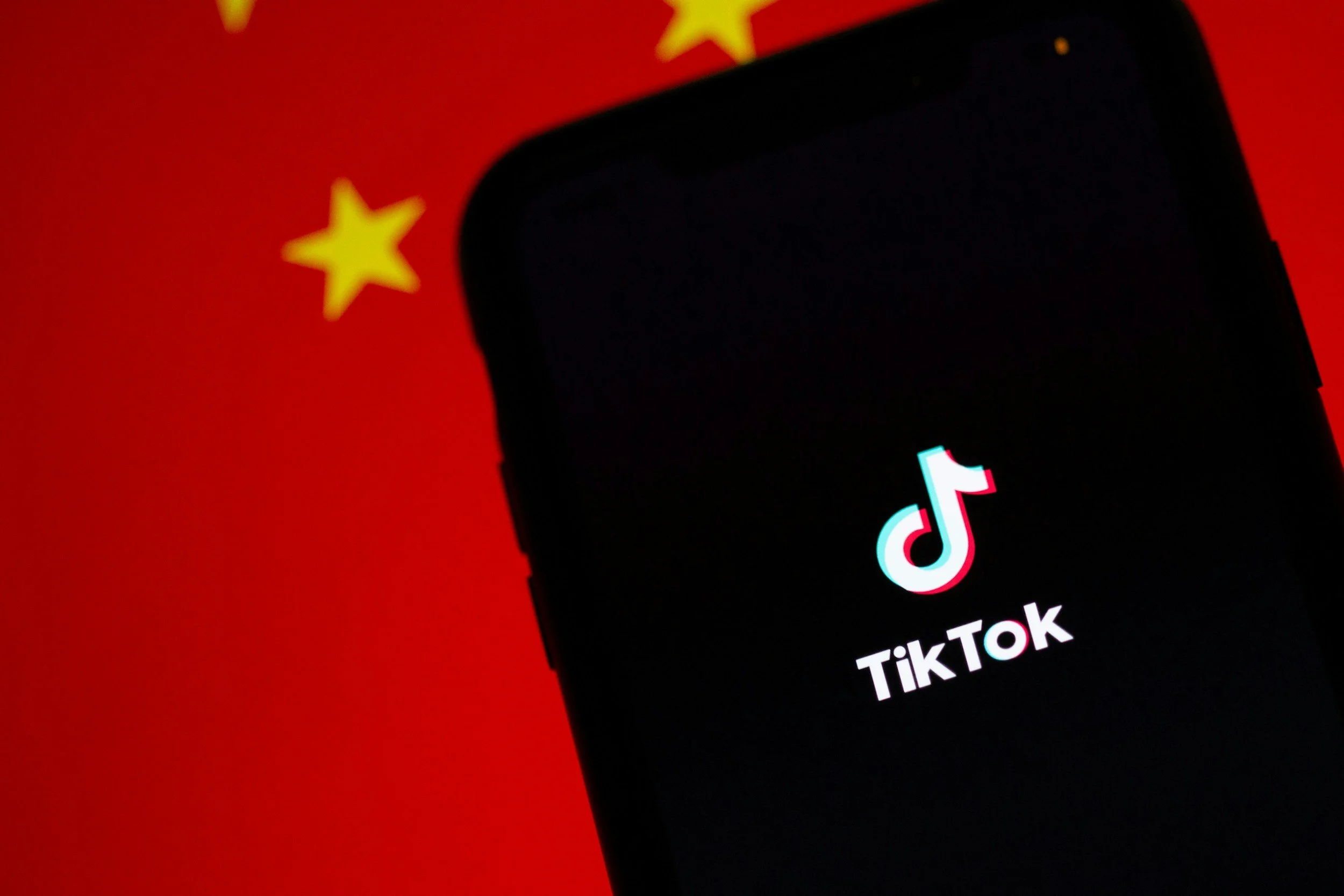TikTok Ban Enacted in the United States, Followed by Temporary Reprieve
The TikTok ban represents more than a policy targeting one app - it signals the growing tension between the United States and China over technology, data security and digital sovereignty. (Solen Feyissa/Unsplash)
The U.S. government has enacted a nationwide ban on TikTok, citing national security concerns over its Chinese ownership.
Article by Katie Feeney, White House Social Media Correspondent
WASHINGTON - On Sunday night, the United States imposed a nationwide ban on TikTok, one of the world’s most popular social media apps. This move came as part of the enforcement of the Protecting Americans from Foreign Adversary Controlled Applications Act, which required TikTok’s Chinese parent company, ByteDance, to divest its U.S. operations by the deadline. When ByteDance failed to meet the requirements, TikTok was removed from the Apple App Store and Google Play Store, rendering the app inaccessible to its more than 170 million American users.
The ban, which marks the culmination of years of bipartisan scrutiny over national security concerns, sparked immediate backlash from TikTok users, creators, and businesses reliant on the platform. Popular creators expressed frustration over losing a primary income stream and connection with their audiences, while small businesses lamented the loss of a critical marketing tool. The ban also drew criticism for its potential impact on free speech and digital access.
A Presidential Intervention
Today - just one day after the ban took effect - newly inaugurated President Donald Trump signed an executive order delaying the enforcement of the ban by 75 days. This move aims to give both ByteDance and U.S. authorities more time to negotiate a potential resolution. A key component of the discussions includes a proposal for the U.S. government to acquire a 50% stake in TikTok’s U.S. operations, ensuring that American data remains secure.
The executive order has sparked controversy as legal analysts noted that the president’s action contradicts the law passed by Congress and upheld by the Supreme Court. Critics argue that the delay creates uncertainty, potentially complicating ongoing negotiations and legal proceedings.
The Aftermath
The immediate effects of the ban and its temporary reprieve have been widespread. A surge in demand for devices with TikTok pre-installed has been reported, with listings for such devices appearing on eBay for astronomical prices - some as high as $1 million. This reflects the app’s deep cultural resonance, particularly among younger audiences who have integrated TikTok into their daily lives for entertainment, education, and community-building.
Meanwhile, ByteDance has reaffirmed its commitment to complying with U.S. regulations. Bill Ford, CEO of General Atlantic and a member of ByteDance’s board, expressed optimism that a deal could be reached without the need for a full divestiture. Potential buyers for TikTok’s U.S. operations have already emerged, including high-profile figures like Elon Musk and Larry Ellison, as well as companies such as Oracle.
Broader Implications
The TikTok ban represents more than a policy targeting one app - it signals the growing tension between the United States and China over technology, data security and digital sovereignty. Lawmakers have long argued that TikTok poses a risk to national security by potentially allowing the Chinese government to access sensitive user data. ByteDance has repeatedly denied such allegations and taken steps to localize data storage, but the concerns have persisted.
For creators and advertisers, the ban underscores the risks of over-reliance on a single platform. Many are now seeking alternatives, such as Instagram Reels, YouTube Shorts and emerging platforms like RedNote. Snapchat spotlight is now offering a new monetization program for creators that will start on February 1st of this year.
What’s Next?
With 75 days to find a resolution, the future of TikTok in the U.S. remains uncertain. The extension provides a narrow window for negotiations, but the possibility of prolonged legal battles looms. The outcome will likely have lasting ramifications, not only for TikTok but for the broader landscape of social media and international tech regulation.
As developments unfold, TikTok’s millions of U.S. users, content creators, and businesses are left waiting, unsure whether their beloved platform will return - or whether they must prepare for a digital world without it.
